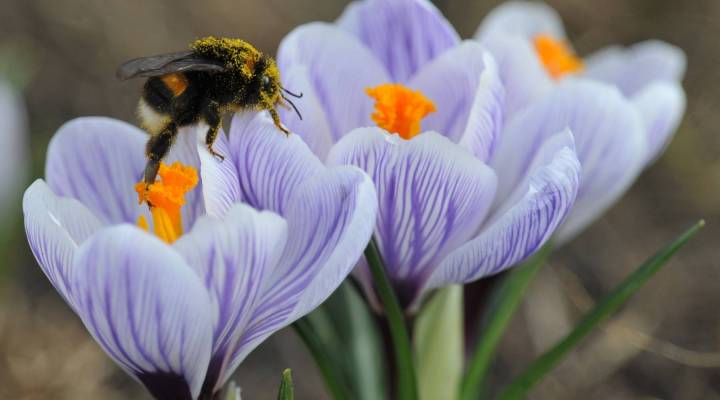
Bee population decline linked to common pesticide

Bee populations in the U.S. — and even other parts of the world — have been on the decline, which has many worried. Well, two new studies out might have figured out a reason why.
Here to talk with us in today’s Mid-Day Extra is Jeff Pettis, a researcher of bees at the U.S. Department of Agriculture.
He explains while this new research is a helpful clue, it isn’t quite enough evidence yet to send pesticides packing. And why should we care about bees in the first place? Well, they contribute to the growth of around one-third of our diet in this country.
There’s a lot happening in the world. Through it all, Marketplace is here for you.
You rely on Marketplace to break down the world’s events and tell you how it affects you in a fact-based, approachable way. We rely on your financial support to keep making that possible.
Your donation today powers the independent journalism that you rely on. For just $5/month, you can help sustain Marketplace so we can keep reporting on the things that matter to you.












